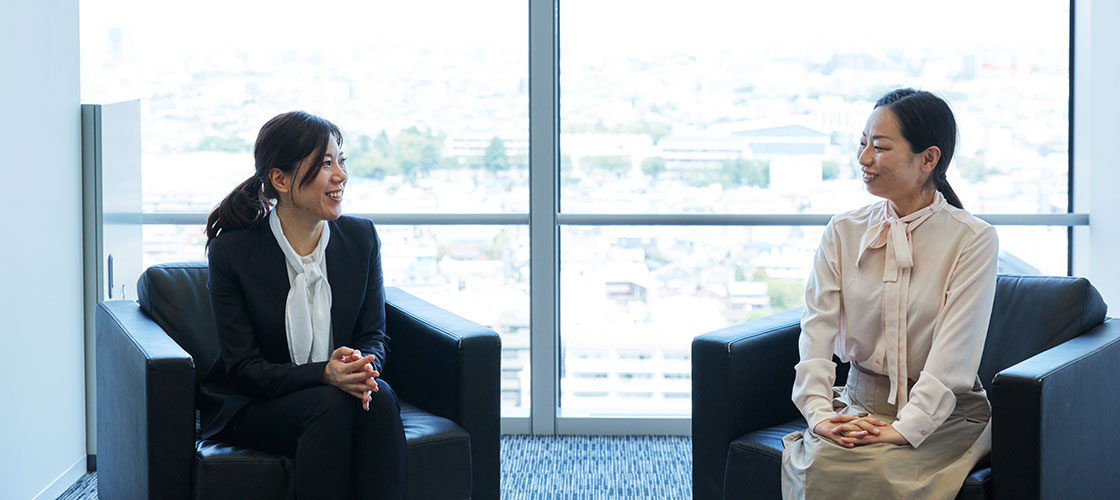The Still Wonderful World of the Brain. Thinking about Brain Health with NeuroscientistDr. Ayako Onzo / Neuroscientist
Dr. Eri Nakazaki / Researcher, Kirin Central Research Institute, Research & Development Division, Kirin Holdings Company, Limited
In Japan today, it is said that we are living in the "100-year life era." However, there are many pressing issues, such as dementia, which need to be resolved.
The Kirin Group, too, has focused on the fact that daily cheerful feelings and unsettled worries are closely linked to brain functions, and is promoting "Kirin Brain Research" to protect brain health and create new joy, mainly in the Health Science domain.
The brain is an organ that is a part of the body, but is still a mystery to many. What are the various possibilities of human beings hidden in the brain?
Dr. Ayako Onzo, author of "My Mom Has Dementia," a book that examines life with her mother who has dementia from the perspective of a neuroscientist, and Dr. Eri Nakazaki, who focuses on exploring and researching new materials, including brain research at Kirin, had a conversation. They had a thorough discussion about "brain health" now and in the future.
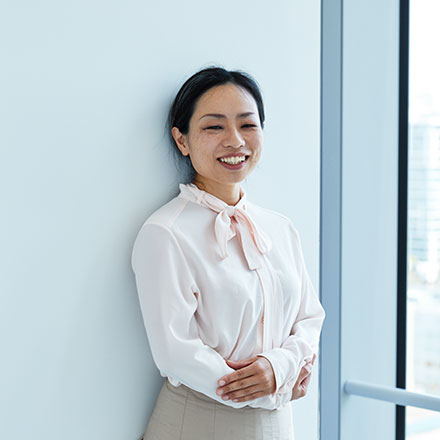
Dr. Ayako Onzo
Neuroscientist
Completed doctoral program in Computational Intelligence and Systems Science at Interdisciplinary Graduate School of Science and Engineering, Tokyo Institute of Technology, Ph.D.
As of May 2022, she is a part-time lecturer at Kinjo Gakuin University, Waseda University, and Japan Women's University. She is the author of "My Mom Has Dementia," and the translator of "Ikigai" (The Purpose of Life) by Kenichiro Mogi and "About Face" by Jonathan Cole, supervised by Kenichiro Mogi.
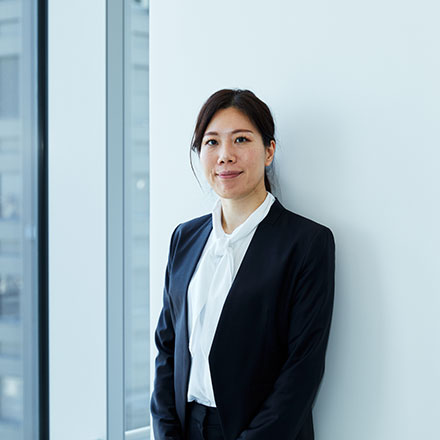
Dr. Eri Nakazaki
Researcher, Kirin Central Research Institute, Research & Development Division, Kirin Holdings Company, Limited
She has been involved in the evaluation and acquisition of evidence for health functional materials produced by fermentation technology. Since joining the company, she has been in charge of Citicoline for 10 years. In 2015, she received her Ph.D. (Environmental Studies) In July 2020, she transferred to Kirin Central Research Institute, Research & Development Division, Kirin Holdings Company, Limited. From April 2022, she has concurrently served in the Corporate Strategy Department. He is also focusing on the exploration of new materials and research planning such as HMO (human milk oligosaccharides).
Contents
- The brain is not an independent organ. Researchers' views on the human mind and body
- I don't want my mother’s life to be denied. Why a neuroscientist approached dementia
- What is needed is a safe and adventurous environment. Brain health is created by new experiences.
- Why brain research by a beverage manufacturer? Kirin's path to Citicoline
- Don't assume limitations. Human vitality as seen in my mother with dementia
The brain is not an independent organ. Researchers' views of the human mind and body
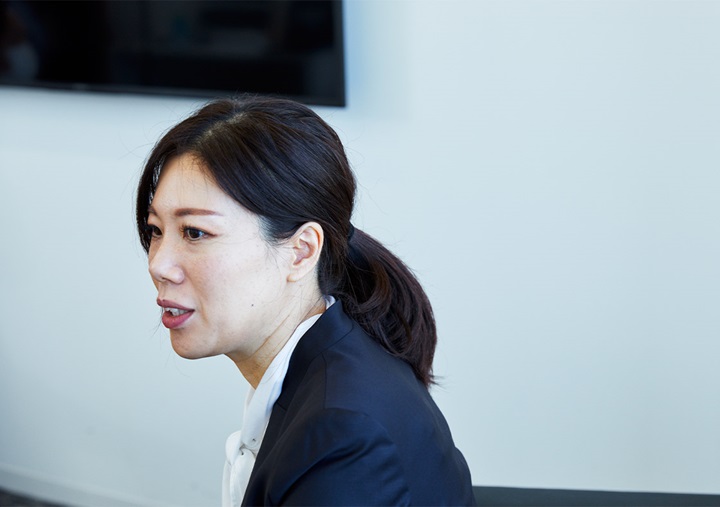
Dr. Eri Nakazaki
First of all, can you tell us about your previous studies?
Nakazaki: In the Food & Beverages domain, what are the functions that have a positive impact on people? What are the benefits? I am pursuing these questions. When I was a student, I specialized in nutrition and molecular biology, and I repeatedly conducted experiments to see what effects antioxidant components such as polyphenols contained in plants have on cells. Then I gradually became interested in the social implementation of such basic research. In order to do this, I thought it would be easier if I joined a company. I decided to work for Kyowa Hakko Bio, which is now part of Kirin, and began my career as a researcher from the perspective of evaluating the functionality of foods.
After joining the company, I was given the theme of "researching materials that have potential for brain function," and since then I have continued my research, including on Citicoline, an ingredient that is expected to contribute to the maintenance of brain health, mainly in Europe and the United States.
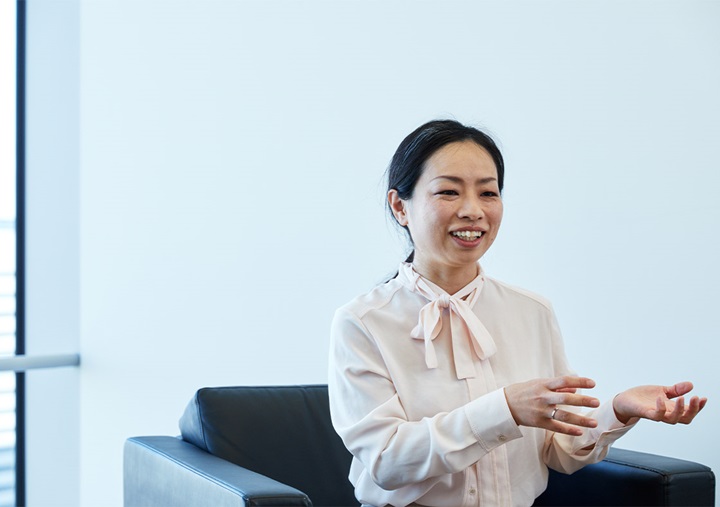
Dr. Ayako Onzo
Onzo: I specialized in physics when I was in college. From there, my interest turned to the more complex and difficult to elucidate area of the human mind. Then, I began to do research on human higher brain functions (various functions performed in the cerebrum, such as language, action, perception, cognition, memory, attention, judgment, and emotion).
In recent years, much attention has been paid to artificial intelligence (AI), which is an entity that seems to have maximized the higher brain functions of humans. If AI can collect information with no limit and output information based on that unlimitedly, we humans, on the other hand, have to manage to survive using our tiny one-liter brain. This is, well, very discouraging. So now, the focus of attention is turning to what we can do to maximize the use of this tiny, yet potentially versatile, human brain.
For example, what kind of nutrition would make the brain more active? In other words, I have come to believe that the brain should not be considered an independent organ, but more as a part of the body. In other words, I came to realize, belatedly, the importance of functional foods, which is your area of research and development.
I don't want my mother’s life to be denied. Why a neuroscientist approached dementia
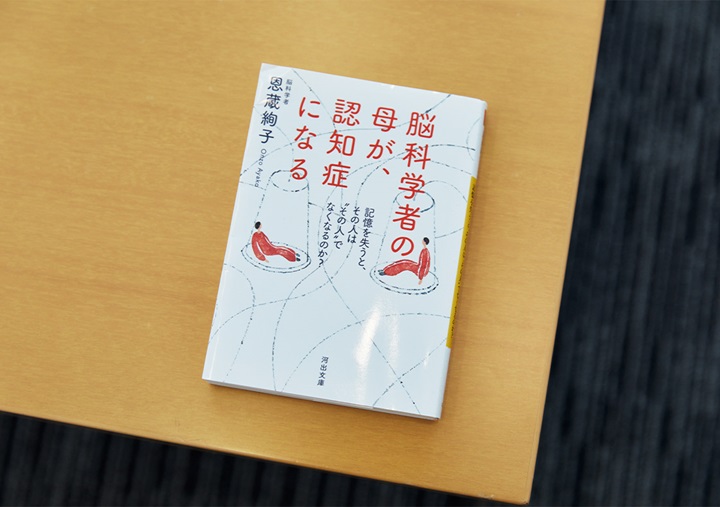
In 2018, Dr. Onzo published a book titled "My Mom Has Dementia," which examines life with her mother, who has dementia, from a neuroscientist's perspective. What are some of the major differences between neuroscience and medicine when considering approaches to dementia?
Onzo: Basically, medical treatment is oriented toward prevention and cure, isn't it? However, there is no medicine that can completely cure dementia. Neuroscience, on the other hand, is useful in the direction of accepting dementia rather than curing it. I think this approach is possible because we know how rich in variety each person's brain is through various studies.
For example, when an elderly person close to you goes through a period of brain changes due to aging, you may say, "Huh? Something is wrong with them." But if you know the diversity of the brain, you can calmly accept it and say, "Well, we all have those moments, don’t we?" I mean, the discomfort in speech and behavior caused by aging is very déjà vu.
Nakazaki: So you are saying that you experienced this at a much younger age?
Onzo: Yes. It is very similar to what adolescents say and do. Adolescents, partly due to hormones, are unable to control their emotions and act impulsively. I myself was a bit of a mess when I was in middle and high school, so I understand this very well. When you think about it, it is never unknown. Once you say, "Oh, I know what that feels like..." I think you will feel a little more familiar with it, and the fear will lessen.
I was saddened by the current situation in which many people in the world think, "I don't want to be just like this," when it comes to people with dementia. That is like being denied the life of your own mother. I wanted to change such a social perception! That is why I wrote that book.
What is needed is a safe and adventurous environment. Brain health is created by new experiences.
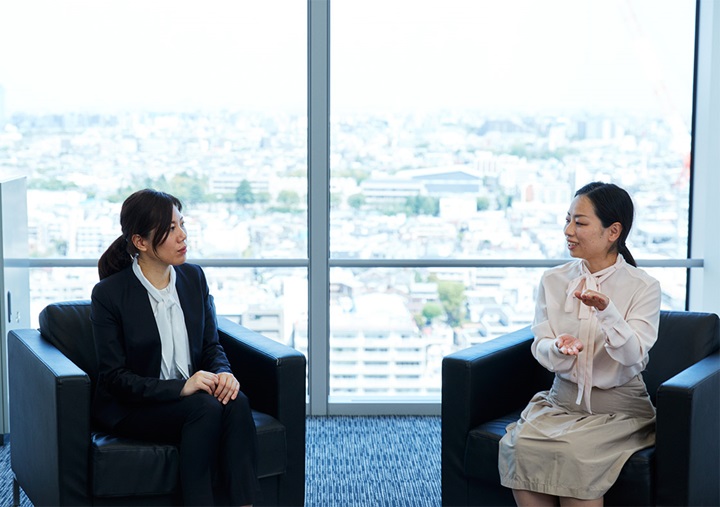
We can imagine the health of the body to some extent because we have criteria such as health checkups, but when it comes to the brain, it is a little difficult to understand, even though it is a part of the body. What do you think of brain health from the standpoint of a researcher?
Onzo: Of course, there is the presence or absence of disease, but I believe that brain health can be measured by whether or not one is willing to take on new experiences.
Nakazaki: This was a surprising answer! I had thought that I would be judged by my score on a test like the brain training test.
Onzo: When I see people who are old and listless, in many cases they are living in a routine. They have a set routine of things to do each day, and they are repeating it. While this has the advantage of providing peace of mind, it also means that the brain is not functioning at its full potential. When you try new things, your brain needs to process the new information you gain there. Then, emotion kicks in. Furthermore, when the experience is successful, the brain is satisfied and releases the neurotransmitter dopamine, which brings pleasure to the person. This activates the entire brain.
Of course, you may feel nervous and anxious about your first experience. But at the same time, it can also trigger positive feelings of enjoyment. So, all of these are important stimulation.
I wish more and more people knew that emotions are the barometer of health.
Nakazaki: I see. But as we get older, we naturally feel more at ease with what we are used to than with what is new.
Onzo: Indeed. But there are certain misconceptions out there, and I think there are many ways to approach this. For example, suppose there is a tiger in a zoo that loves venison, and the zookeeper keeps feeding it venison every day to make the tiger happy. Of course, for the sake of clarity, he always places the venison in the same feeding area. Instead of being pleased, the tiger gradually becomes restless and wanders around, and eventually scratches its body, causing bald patches on its body.
This is one example of how an environment created with the animal's best interest in mind can be rather stressful. Essentially, a wild tiger runs and hunts every day. However, there are days when they catch something and days when they don't . That is nature. But in the case of this zoo, while the tigers can eat what they want every day without difficulty, they have lost the joy of adventure that is just as important: the search for and acquisition of food.
This situation is a bit like the environment in which dementia patients find themselves. They are often "safely" confined to their homes by their families, fearing that they will go out alone and lose track of their whereabouts. But it's easy to get caught in a vicious cycle of stress from being restricted in their activities, and as a result, they go outside when everyone else is caught off guard. Even if you have dementia, you still need new adventures.
Nakazaki: So you are doing what you think is best for safety, but it ends up having the opposite effect.
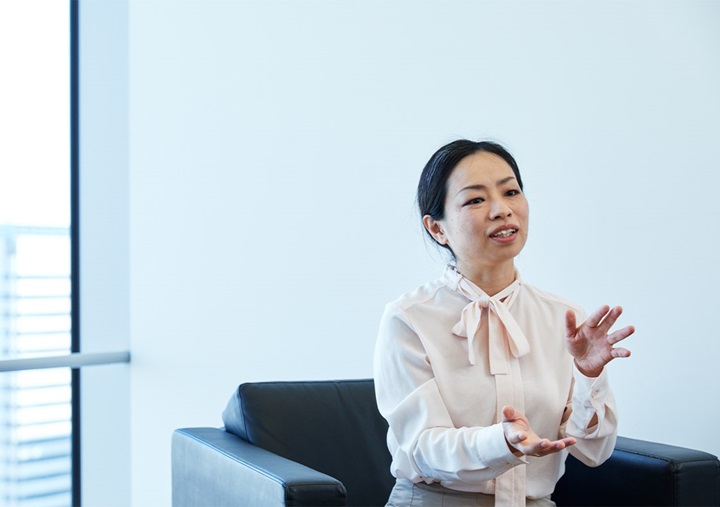
Onzo: It seems to be a universal fact that people need a new environment in moderation, and that it is more enjoyable to live in such an environment. Of course, too many new things can be tiring, so it is better to do it in moderation. For example, if you are an elderly person, starting with a walk with someone you know well may be a good way to get a moderate amount of stimulation on a daily basis.
The important thing is to provide a safe environment where people around you feel that "you can have an adventure here." For example, having a family member or someone you can trust nearby makes you think, "I am nervous because this is my first time, but with this person nearby, even if I make a mistake, it should be okay," and you can take a new step forward. An environment where people can stay lively in any condition is nothing but a safe adventure, although this may seem like a contradiction in terms.
And this is not limited to the elderly. Young children, too, have a reassuring presence of their parents next to them, which allows them to show interest in things that are unknown to them, and to step out into new experiences. In the end, it is all about communication.
Why brain research by a beverage manufacturer? Kirin's path to Citicoline
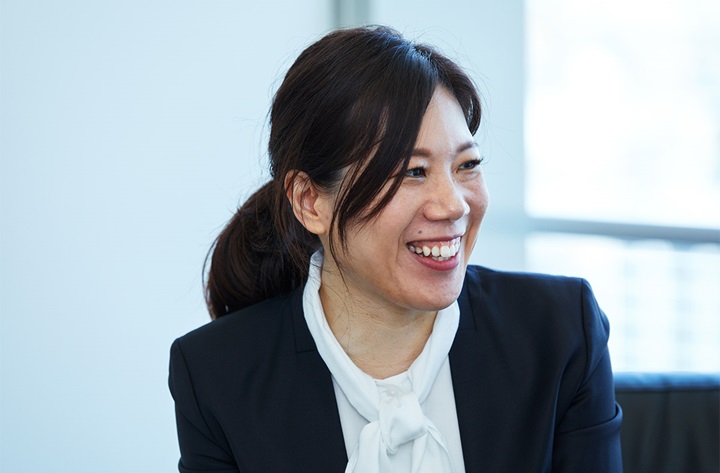
What prompted Kirin, a beverage manufacturer, to focus on the brain?
Nakazaki: As you mentioned earlier, "the human mind" and "(the brain) is a part of the body," and we at Kirin thought that in order to live a healthy life, we should not "only" look at the body. In other words, we followed your trend of "not only the brain but also the body" in reverse. When one thinks of the "state of wellness," one needs to be healthy both physically and mentally. In other words, we must consider not only physical health but also mental health. At that time, we cannot ignore the existence of the brain, which is closely related to the mind.
Onzo: So the ingredient Citicoline, which has been proven to be good for brain health, is one of the results.
Nakazaki: Yes. Citicoline is a material that can be produced through fermentation at Kyowa Hakko Bio. In Japan, it has a long history of use as a medicine, administered as a prognostic agent in the treatment of brain disorders. We have demonstrated through various experiments that Citicoline has the ability to maintain or improve brain function. Considering the current situation where the population is aging and dementia is becoming a bigger problem, it is important to have a viewpoint of "how to control it" in advance. That is why I believe it is necessary to have people who are still healthy and have not yet developed symptoms of dementia consume food and beverages to help prevent the disease.
In Japan, its use is limited to pharmaceuticals due to regulations, and it has not yet been distributed as a food product. However, in the U.S., it is already in use, and various products such as beverages and supplements have been introduced to the world. However, I don't think we should be in a hurry. The important thing is not to say at random, "This is good!" Rather, we need to make recommendations based on solid data and evidence, and have people take them after they are convinced of the benefits. It may take time, but I believe it is important to take the time to do the research.
Don't assume limitations. Human vitality as seen in my mother with dementia

Onzo: I look forward to your future developments. I believe that it is not enough to deal with brain diseases, as symbolized by dementia, using a single approach. Exercise, nutrition, sleep - we need to include everything in our daily lives. It is not a case of, "Do this, take this, and you will be cured in one shot!" As for things where there is solid evidence, we should be determined to try everything we can. After that, we can see if it is right for the person or not. And as one of the many options, I think the research that your team is doing is wonderful. I think that health foods such as supplements are easy to try, and when combined with medical care, they can motivate people to "try something new!" I am sure that the combination of supplements and medical care will motivate people to try new things.
Nakazaki: Thank you very much, that is very encouraging. However, what you have said today has made me reflect a little on what I have done. I had been overconfident in the past, thinking that it would be enough to supplement the body's deficiencies in the form of food.... But perhaps we need to pay more attention to how we can fully utilize and enhance the functions that we are equipped with in the first place.
We researchers are often defined by laws and other rules, whether we are conducting experiments or developing products. However, from now on, it may be necessary for us to actively step outside of conventional knowledge and common sense. I feel that this will become more and more important in approaching the diverse existence of human beings. What kind of research would you like to do in the future?
Onzo: I would like to conduct research that will allow me to delve deeper into the potential of the elderly, or more specifically, human beings. I also want to change society's avoidance of dementia as something that is simply scary. The disease, in its mild stages, often begins with damage to the hippocampus, a tissue in the brain. And because it is a progressive disease, it slowly spreads over time to other tissues, manifesting itself in various forms of memory impairment. This is a serious matter. But while the brain is a complex organ, it is not a machine. Just because one part goes bad does not mean that the whole thing is malfunctioning. Humans can make do with other parts complementing the ruined parts, or they can revive unexpectedly, over and over again. I have witnessed such wonders many times through caring for my mother.
For example, my mother was recently hospitalized for three months, and there was COVID19, so I was prohibited from visiting her during that time. I was worried that my mother, who has severe dementia, would forget about my father and me during that time. But when she was discharged from the hospital the other day, I saw her exactly the same as before. Seeing her like that, I felt so much life and was so moved. And I thought to myself, "We should not set limits to human beings." By conveying this kind of human resilience to the world more and more, I would like to create a society where people do not have to be extremely afraid of dementia or despair that "it is the end of the world."
Release date: August 10, 2024
Contents, affiliation, position, etc. are as of the time of publication
- Photography by Nanao
- Text by Chikara Tsujimoto
- Edited by Ai Hanazawa, RIDE Inc.


